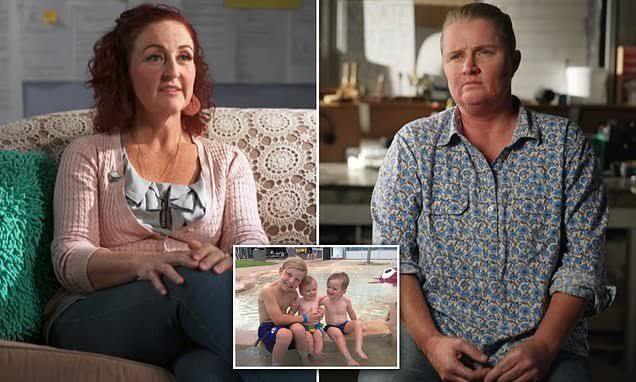A couple have accused a major IVF clinic of using the ‘wrong sperm’ after their two youngest children developed serious health complications and they discovered they were not related to their eldest child.
WHAT HAPPENED?
Anastasia and Lexie Gunn conceived three sons through donor sperm at the Queensland Fertility Group (QFG) between 2006 and 2014.
The couple had paid for the same donor’s sperm to be used for all three children but later discovered that their eldest was not related to his two younger brothers after hundreds of hours of painstaking research.
‘It’s a catastrophic error… how could they have used the wrong sperm to make children?’ Anastasia said.
‘We had IVF and got the wrong sperm,’ Lexie added.
‘It’s shattered what we all believe to be true.’

THEIR STORY
The revelations come as part of a major investigation by the ABC’s Four Corners into Australia’s immensely profitable IVF industry.
Anastasia told the program they had taken great care to choose the right donor, deciding on Donor 227 who was billed as a fit, healthy white male who was around 25–30 years old.
‘Medical background was definitely of concern to me,’ she said.
Four years after their first son was born, they decided to have more children and contacted QFG to see if they could use the same donor.

‘We wanted them all to have the same biological father to tie them together so that then when they have children, their children are all tied together with biological history,’ Anastasia said.
The clinic told them they could use the same donor and they ended up having two more sons.
But both boys suffered serious health complications from birth.

READ ALSO: Drunk waitress WAKES Up in locked club toilets the morning after partying with friends
HOW THE COUPLE FOUND OUT
They were diagnosed with Ehlers-Danlos syndrome, which causes very flexible joints and fragile skin, while the youngest also had a diagnosis for autism and ADHD.
Concerned by the number of health conditions, the couple tried to find out if any other children of donor 227 had similar problems so they sent their sons’ DNA to an ancestry website.
But the results shocked them when they discovered their eldest was not biologically-related to their youngest two.
‘I was completely perplexed,’ Anastasia said.
‘I could see that there was no match between our eldest boy and our younger two.’












